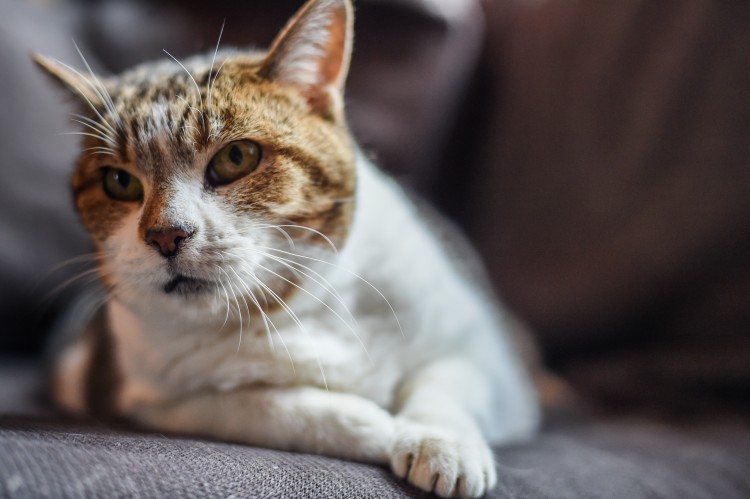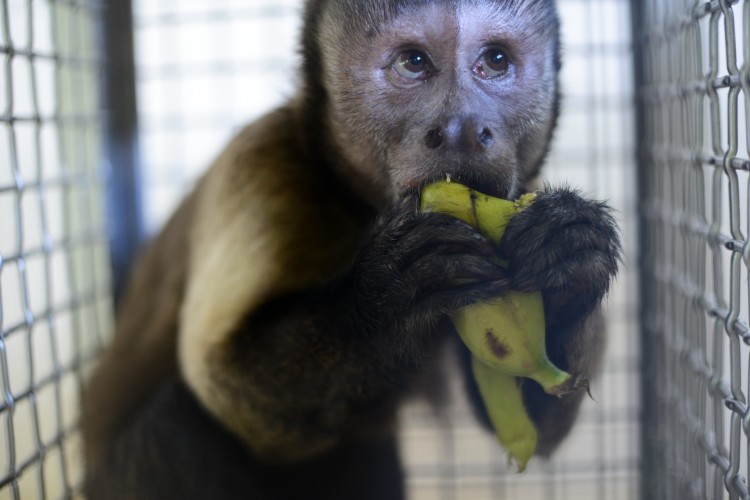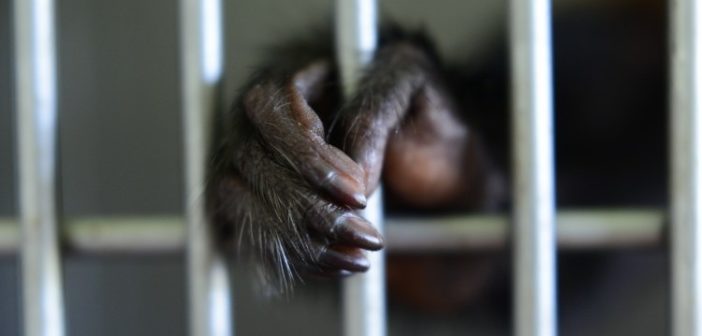More than 100 million animals are bred, used and disposed of as hazardous waste in research and product testing in the United States every year. These millions of animals experience great physical and mental suffering, and there are few laws that protect them.
There is a growing body of scientific literature critically evaluating and questioning the validity of animal experimentation. The lack of reliability or accuracy, high cost, and time-consuming nature of animal experimentation undermines arguments in favor of the practice. Additionally, animal experimentation often significantly harms humans through misleading and inaccurate studies. In 2015, one peer-reviewed article stated that the “collective harms and costs to humans from animal experimentation outweigh the potential benefits and resources would be better invested in developing human-based testing methods.”
Today there are many alternatives to animal testing that are safer, more scientifically accurate, more cost-effective, and far more humane. More and more scientific experts are recommending a complete shift away from animal testing. It’s time to change the future of laboratory testing by using non-animal research methods.

There’s no protection for laboratory animals
There are no laws in the U.S. that prohibit conducting any animal experiment, no matter how painful or deadly. The Animal Welfare Act (AWA), a federal law designed to protect animals used in research, is rarely enforced and often ignored, and it does not protect farmed animals, birds, mice or rats, or reptiles. Under the AWA, many animals can still be electrically shocked, burned, starved, injured, psychologically tormented and killed. Plus, it’s perfectly legal to force laboratory animals to live in strict confinement where they can barely move and subject them to social isolation inside barren and cold steel cages, void of enrichment and any comfort at all. Animals used in research are frequently prevented from expressing normal behaviors, even those as basic as being mobile or having social interaction.
It is not morally acceptable or justified to inflict suffering, cruelty, and death on vulnerable sentient animals on a daily basis, especially when there are many more viable and effective alternative testing methods today. We do not have the right to inflict this level of suffering on those who are at our mercy.

Ending testing on animals for cosmetics
Cosmetic testing on animals is particularly controversial. Governments throughout the world are increasingly eliminating the use of animals in cosmetics testing. The European Union imposed a ban in 2013, which also banned the sale of cosmetics tested on animals in Europe, even if the testing was done outside of Europe. Since then, many major companies have stopped testing cosmetics on animals. Other countries that have banned cosmetic testing include Australia, The Netherlands, New Zealand, Belgium, India, Taiwan and the U.K. Several other countries are moving toward similar bans now including Israel, Norway and Brazil.
In the U.S., the Humane Cosmetics Act (HR 5141) was re-introduced in November 2019. The act would federally ban animal testing of products made and sold in the United States. It’s time for the U.S. to catch up with the E.U. and U.K., as well all the other countries that have committed to ending this outdated and cruel practice.
How you can help get animals out of laboratories
- Buy cruelty-free products. Buy only cruelty-free products with the Leaping Bunny logo. This includes beauty and cosmetic products and household cleaning products. Most cruelty-free products are available in health and natural food stores or online. Here is PETA’s searchable database. Always check the label; if it doesn’t say, they likely test on animals. If you’re unsure, contact the company directly to ask.
- Download the cruelty-free app for smartphones. It’s free, easy to search, and has scanner functionality so you can search products by UPC barcode. Download the app from iTunes or Google Play.
- Make your own household products. Clean your kitchen and bathroom with baking soda and white vinegar. Use grapefruit and salt to make a body scrub, and coconut and grapeseed oil as a powerful moisturizer. Google “DIY Household Cleaners” or “DIY Cosmetics,” and you’ll see lots of natural alternatives to animal-tested products. They are better for your health, the animals and the environment. Here are some ideas to get you started.
- Boycott companies that are cruel to animals. Don’t support or buy from any company or brand that tests on animals, or harms, injures or kills animals. Boycott them instead, and ask friends and family to boycott them as well. Share your boycott on social media.
- Write to your legislators and newspaper editors. Explain that animal research does not lead to cures for human diseases, and ask how spending taxpayers’ money on animal research can be justified when there are more accurate and successful testing methods today.
- Urge your lawmakers to support the Humane Cosmetics Act. Please make a brief, polite phone call to your U.S. Representative to urge support for HR 5141, the Humane Cosmetics Act. Look up your legislator’s phone number here.
- Donate your body to science. The Anatomy Gifts Registry (AGR) is an independent, ethical, non-profit organization that supports advancements in scientific research and medical education. And the International Institute for the Advancement of Medicine (IIAM), is dedicated to providing valuable human bodies, organs, and tissues to medical researchers.
- Never abandon your pet at an animal shelter, and adopt your next pet. Animal dealers that contract with laboratories are called “bunchers,” and they collect animals from shelters and sell them to labs for testing. Never abandon your pet to a public shelter, and when getting a new pet, always rescue from a shelter or rescue group, don’t buy from a breeder or pet store.
- Write to your favorite companies. Send a letter, email or phone call to your favorite companies asking them if they test on animals, and telling them you oppose any animal testing. This lets them know that consumers care and are shopping based on their compassionate values. Here’s a sample letter/email.
- Share cruelty-free products/brands with your favorite businesses. Talk to your doctors, grocery stores, drugstores, beauty shops, and services about brands and products that are cruelty-free. Ask them to use only cruelty-free products in their businesses. Tell them why it matters to you.
- Share this article! Help more animals by reaching more people on social media!
This article was compiled from information originally published on the Humane Decisions website.
Featured image: A monkey formerly used in research holds onto the bars of his cage in the vet clinic at Jungle Friends Primate Sanctuary. Image credit Jo-Anne McArthur / NEAVS.





